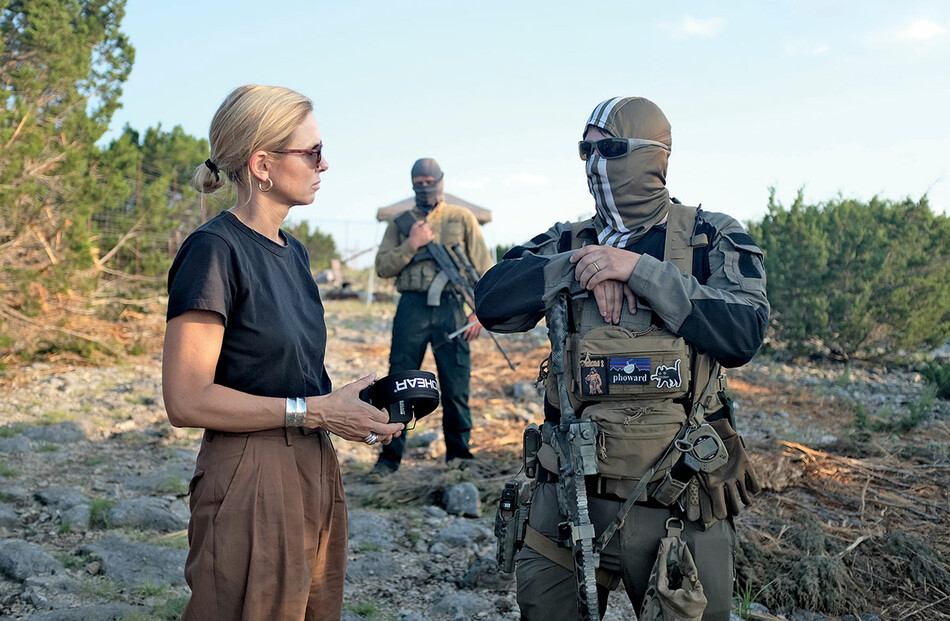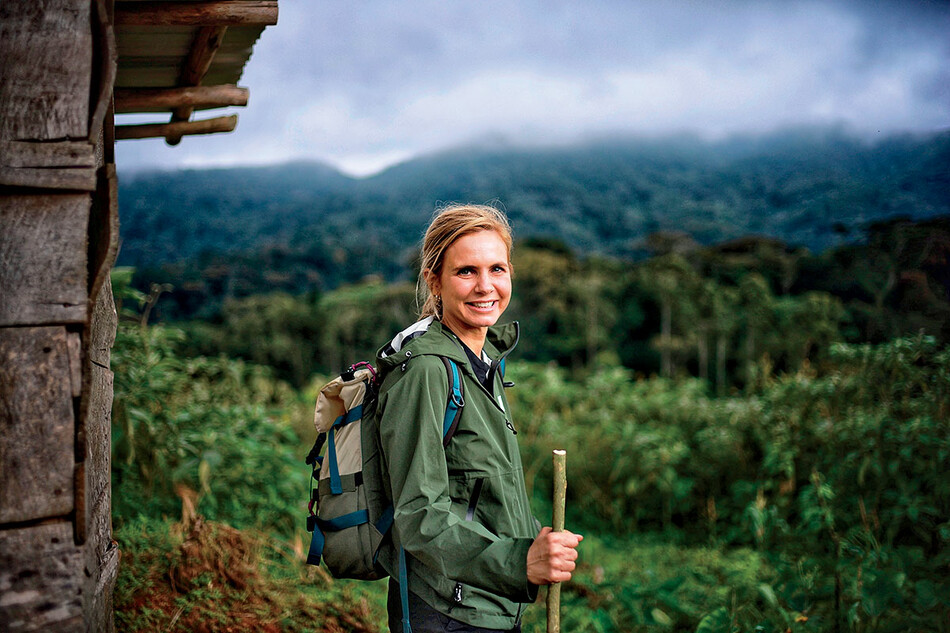She’s met with crypto scammers, drug dealers, assassins, and human traffickers, taking viewers everywhere from meth labs in Sinaloa to gang dens in South Africa, but investigative journalist Mariana van Zeller ’02JRN, host of the National Geographic series Trafficked, still insists she has one of the best jobs in the world. “I have the privilege of experiencing situations that very few people will experience in their lives,” she says. “And no matter how far to the edges of society I travel, I can still find people who are relatable and redeemable.”
Trafficked, whose fifth season premieres in July on the National Geographic channel and Hulu, takes viewers deep into the underbelly of the world’s notorious black markets, offering a rare and intimate look at the people who drive them. In each episode, van Zeller sets out to untangle the complexities of a criminal enterprise, sitting down with the masked masterminds — dealers in drugs, guns, exotic animals, and often humans — who are willing to share the details about their nefarious networks. “About 38 percent of the global economy consists of black and gray markets,” says van Zeller. “Yet we know very little about them.”
Van Zeller and her team secure such an incredible degree of access to criminals who, with their faces covered and voices distorted, are willing to speak on international TV that she is often asked if the show is fake. “It would be much easier if it were fake, but it’s not,” she says. Indeed, each forty-five-minute episode requires months, even years of research. “I’ve taken trips halfway around the world to meet with people who then turn me down,” adds van Zeller, who is also an executive producer. “I’ve gotten used to being rejected, but it’s all about persistence.”
It was van Zeller’s unwavering persistence that kick-started her career. Growing up in Portugal, “I used to watch the nightly news with my family, and I thought the anchors were the most intelligent, fascinating people,” she says. She applied to Columbia Journalism School — “the most famous, best journalism school in the world” — and got rejected (twice) but refused to give up. “I decided to get on a plane, fly to New York, and knock on the dean’s door.” She ended up speaking with associate dean David Klatell for an hour. Later that year, she received an acceptance letter. “It was a day that changed my life,” says van Zeller, who not only got an education but also met her husband and collaborator, Darren Foster ’02JRN, at Columbia.
The success of Trafficked, the winner of five 2024 News and Documentary Emmys, is built on the premise that “people want to be understood, and they want to talk about what they do,” says van Zeller. “Sometimes their own families don’t even know. They see themselves as the best at their jobs, whether as counterfeiters or chemists, and they have no one to boast to.” Many also feel immune to consequences. While van Zeller approaches interviews with empathy and an open mind, some sources are less relatable than others. “The episode we did about assassins was hard,” she says.
Van Zeller can appear shockingly fearless on camera. But a few situations have been legitimately terrifying. For the final episode of season four, the Trafficked team was in Niger to investigate the links between gold mining and terrorism when a military coup broke out. “The airspace closed, the borders closed, and we had no way out,” recalls van Zeller. “This is one of the most dangerous places on earth, with kidnapping squads and groups like ISIS, al-Qaeda, and Boko Haram, and we were a possible target. I felt enormous responsibility for my team.” After several days holed up in a remote desert hotel, van Zeller and her crew boarded an emergency flight, making an escape that capped off one of the show’s most gripping episodes.
Even after that close call, van Zeller isn’t backing down from exposing global trafficking networks and the conditions that enable them. “A lot of black markets occur as a result of governments failing us,” she says. “We did an episode on how millions of Americans resort to counterfeit pills because they can’t afford to fill their prescriptions, even though they have insurance. I think that says more about systemic failures in the United States than about the black-market operators finding opportunity in those failures.”
Despite the dangers of her work and the frequent interactions with scammers, smugglers, and murderers, van Zeller maintains a positive outlook. “Nobody is born wanting to be a criminal. It’s a lack of opportunity and jobs that leads most people into lives of crime,” she says. “I truly believe that trying to understand why people do what they do is more important than judging them.”




